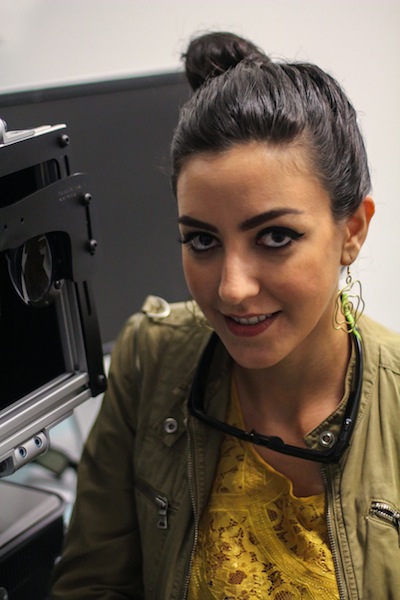We know why we feel acute pain: You place your hand on a hot burner accidentally, your brain registers the sensation and instructs you instantaneously to move your hand.
See on www.huffingtonpost.com

We know why we feel acute pain: You place your hand on a hot burner accidentally, your brain registers the sensation and instructs you instantaneously to move your hand.
See on www.huffingtonpost.com

The Transforming Pain Research Group is holding an information session for chronic pain patients interested in learning more about our research. The session will be held at the Transforming Pain lab at the Simon Fraser University Surrey campus on Wednesday, August 1 at 6 p.m. If you’re interested in attending, please email admin@confrontingpain.com
Specific types of mindfulness practices including Zen meditation have demonstrated benefits for patients with certain physical and mental health problems, according to a new report.
See on www.sciencedaily.com

New research reveals stronger connections between the nucleus accumbens and the prefrontal cortex of the brain in patients who experience pain long after the in
See on www.examiner.com

Pain is a hard thing to measure, and also quite mysterious: Two people may experience very similar injuries and similar levels of initial pain, but where one may recover the other may go on to experience a crippling chronic condition.
See on www.latimes.com

From celebrities hooked on painkillers to reality shows about rehab and those recent Senate hearings in Washington, D.C., investigating pain clinics you cant escape the news that prescription pain pills (which are vital to the proper
See on washingtonexaminer.com

Thanks to her Simon Fraser University Undergraduate Student Research Award, Maryam Mobini has joined SFU’s Transforming Pain Research Group, where she is investigating the feasibility of applying technological means as potential treatment options or interventions for people who are suffering from depression.
Mobini hopes to work with health care experts to develop an affordable non-medical, and non-invasive means of treating North American adults suffering from mild depression and related feelings of anxiety, hopelessness, sadness, and fatigue, in their own homes.
She’s working under Dr. Diane Gromala, director of the Transforming Pain Research Group (TPRG). Mobini says she chose to work with Gromala’s lab because of their area of research.
“Chronic pain has an enormous overlap with depression,” Mobini says. “Depression and pain symptoms commonly coexist, exacerbate or attenuate one another, and appear to share biological pathways and neurotransmitters.”
Mobini was a fourth-year student in the School of Interactive Arts and Technology (SIAT) at SFU when she received the award in 2012. She’s now enrolled in the masters program at SIAT, and continues to do research in the Pain Lab.
“During my time in the lab I was able to work more efficiently and get a better sense of what unique challenges accrue to working with patients, physicians, and specific technologies and methods of communication that are necessary for successful research outcomes,” she says. “I also acquired a holistic sense of what it is like to work in a diverse team, multiple ways to approach issues like depression and anxiety, and how to conduct research from the beginning of a project (anxiety) to the delivery stage of a project which is now being tested in clinics.”
She says she’s looking forward to working with Gromala and the other members of the lab as she pursues her graduate degree.
“As part of the research group, I am developing ideas for the use of technologies that may help with chronic pain and depression.”

The Canadian Institute for the Relief of Pain and Disability and PainBC, with the support of the Canadian Pain Coalition, are launching a new webinar series, “Chronic Pain, Improving Life While Living It”. This free webinar series, provides an opportunity for for people living with pain as well as their families to learn from top researchers and practitioners how to live well with chronic pain.
The first webinar takes place July 25.
TOPIC: The Chronic Pain Conundrum: Current issues in research, awareness, education, access to care
Barry Sessle MDS, PhD (Professor & Canada Research Chair, Faculties of Dentistry and Medicine, U of T
Despite many recent advances over the past 40 years in the understanding of pain mechanisms, and in pain diagnosis and treatment, considerable gaps in knowledge, education and practice remain, with chronic pain present in epidemic proportions in most countries.
DATE: July 25, 2011 11:00 am noon (PDT) / 2 – 3:00 pm (EDT)
LEARN MORE about CIRPD and this webinar series